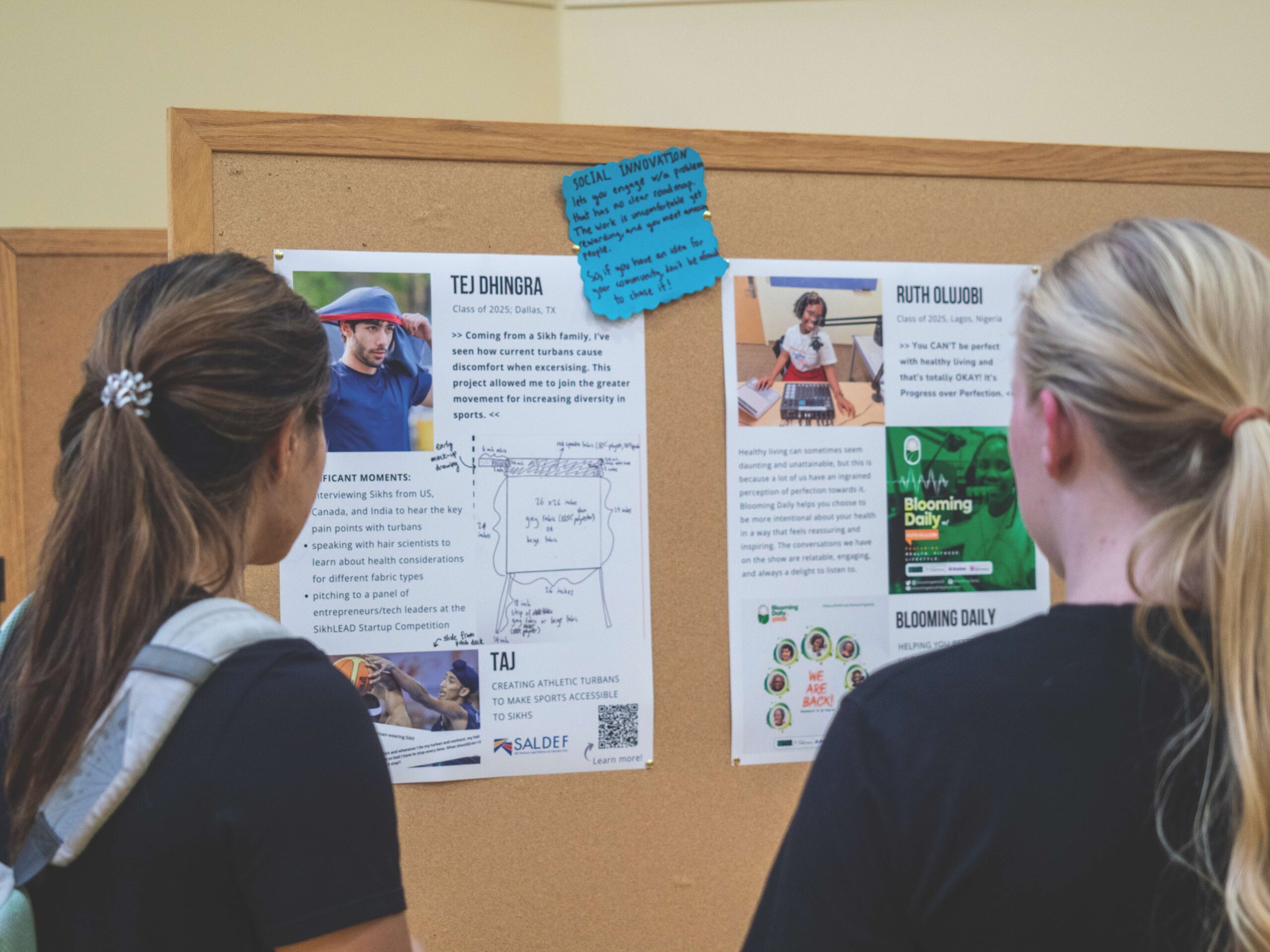First Social Innovation Week highlights entrepreneurship for the common good
October 27, 2023
 Alex Spear
Alex SpearThe McKeen Center for the Common Good hosted its first Social Innovation Week—a slate of events that aim to meld global social impact-focused projects and on-campus events—this past week.
Social Innovation, a concept that emerged during the 1960s, includes any projects or initiatives that people create to solve social issues facing their communities. Examples include recent programs to promote mobile banking in India and renewable power projects across the globe.
“When we see that there are gaps in our system or there are things we need to solve—problems we face—we can find different ways to solve them, or we can improve on the existing systems that are there,” Moana Gregori ’26, one of the week’s organizers, said.
The week’s events specifically focused on innovation and entrepreneurship as they relate to positive community change. Events hosted as part of Social Innovation Week included a screening of the documentary “One Dollar a Day” at Reed House on Sunday, the Solutions Exhibition on Monday, a case competition with the Bowdoin Consulting Club on Tuesday and an impact fire with the Bowdoin Outing Club on Wednesday.
Gregori and Sunny Das ’27, two organizers of Social Innovation Week, view the wide range of events as a valuable way to create social innovation and bring the initiatives of the McKeen Center to students who might not typically engage with the Center.
“[The events] kind of draw different students from different places who might not know it, but they might be interested in social innovation, so we just kind of wanted to tap into them,” Das said.
Gregori came up with the idea for Social Innovation Week at Bowdoin after attending a startup summit as part of her internship in Austria over the summer. The summit featured many of the social impact projects featured as part of the on-campus Solutions Exhibition, an event showcasing social innovations that viewers could take home with them.
“I walked through [the summit], and I was like, ‘Wow, this is super cool.’ You’re giving people so many different ideas of what they could do and connecting them with each other,” Gregori said.
The Solutions Exhibition was originally created by Snowball Effect, an organization that focuses on the impact of social innovations on the local level. Projects range from a food-sharing cafe to reduce food waste in Germany to a recycled plastic sailboat in Kenya. Over 1,400 people have taken part in Solutions Exhibitions in Europe and Africa, and this is the first time a Solutions Exhibition has been held in the United States.
In addition to the dozens of global initiatives showcased, the projects of six Bowdoin students that have worked to improve their communities were displayed. Students were nominated by peers, faculty and staff for their innovative projects.
Participants included Tej Dhingra ’25, who started TAJ, a business that creates athletic turbans to help Sikhs feel more comfortable when playing sports, the summer after his first year at Bowdoin. Dhingra appreciated seeing the projects other students have been working on that have had positive impacts.
“I was surprised to see that so many Bowdoin students were doing such meaningful work. I quickly realized that most people doing these projects off-campus don’t talk much about it, so the event was a cool way to get people to talk more,” Dhingra wrote in an email to the Orient.
After browsing these various projects showcasing social innovation, students were encouraged to leave ideas of their own on a sticky note board. Suggestions ranged from revitalizing post-industrial towns with green manufacturing to creating gap-year programs for students with learning differences to gain confidence.
Reflecting on this engagement from students, Gregori and Das both hoped the Solutions Exhibition, in addition to their other events, would show that Bowdoin is a great place to develop entrepreneurial ideas.
“Bowdoin is a huge playground,” Gregori said. “I think doing the exhibition showed that if you have an idea and you want to do something, that there’s so many different places where you can get funding and support from.”
Gregori and Das also emphasized that though new social innovations are still important for positive social impact, they hoped the week’s events showed that there are a lot of solutions to social issues that already exist.
“There’s a lot to be said from looking at systems that already exist and solutions that already exist and just adapting them to what you want to do,” Das said.
Following the programming, Gregori and Das said that they hope to host another Social Innovation Week with a new slate of events pending public feedback.

Comments
Before submitting a comment, please review our comment policy. Some key points from the policy: